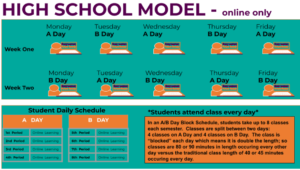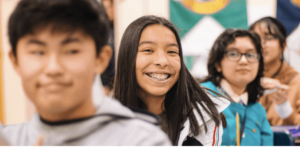Distance Learning and Online Relationships

By Wendy Williams
I never get to meet most of my students in person, because I teach asynchronous online courses via Blackboard, for the City University of New York (CUNY). I was part of a cohort of Ph.D. students who began teaching after fully online programs were available. The online venue allowed us to keep researching and writing our dissertations, teaching asynchronously as time permitted. While teaching, I was working on my anthropological research, on Chinese Americans and their digital communication strategies in Brooklyn’s Chinatown. The focus of my research was the online relationships this group builds and maintains online, using everything from Skype to the Chinese social networking service QQ. My favorite part of doing my anthropological fieldwork was developing new relationships, especially with one particular family. I treasure the details my students give me about themselves, too, as a way to get to know them, albeit virtually.
The CUNY online program, part of the School of Professional Studies (SPS), is for degree completers. Students must transfer in with at least 24 credits, so they are all adults, with complicated lives and many responsibilities. The program began in 2006, offering an online major in Communication and Culture, and went on to offer degree programs in Psychology, Sociology, and Business; there are eight in all today, six bachelor’s and two master’s. Because my students are working adults and often parents, I think many are not focused on the social experience of college; they just want to learn and get their degrees. The big advantage of distance learning for them is that they do not need to travel to a classroom, and there are other perks.
Because class size is capped at 25, SPS classes are more like small seminars than MOOCs, and students thrive on the personal attention and feedback, from me and from each other. Most of their work is written, so students get a lot of much-needed practice in writing. Some are not native English speakers and get to sharpen their language skills as well. The self-pacing means they can tailor the time they spend on each assignment. With their remarkable diversity, typical of CUNY students, they bring a range of perspectives that enhances every class discussion. My colleagues and I spend lots of time thinking about ways to enrich the student’s online learning experience using open source tools — with Jing videos, a blog in WordPress, class discussions on Twitter, and other enhancements.
SPS has an extensive list of instructional design options to include in each course, and having at least some group work is one of those recommendations. Some of my students are resistant to group projects but later report that they found it quite beneficial, for the fresh viewpoints that different minds and learning styles brought to the project. They also get to interact with the rest of the school, and beyond, by producing ePortfolios. One former student, who was considering a new career, took my assignment to produce an academic ePortfolio and ran with it, producing a rich display of her schoolwork that was personal, polished, and creative – just the sort of thing to show to a potential employer or graduate school. It also allowed me to relate to her in a new way, after seeing that we liked the same kind of music.
My students may be more comfortable with the limitations our online program places on relationship building than I am. I share some of Sherry Turkle’s concern from Alone Together (and see her New York Times opinion piece) that people are so focused on text-based communication today that face to face communication can get devalued, along with the relationships it enables. I crave more chances to see light bulbs go off for students, with my own eyes, although I do get to witness it in other ways. I once suggested in an informal discussion forum that my students might be interested in a free lecture at the New York Public Library. I met one student after he graduated who told me that he did attend that lecture, and that it started him on a life-changing journey of discovery of the intellectual life of New York City.
CUNY’s online students benefit from these casual conversations, and so do I. There is room for growth in finding more ways to nurture their social interaction and competency in oral communication, even in a fully asynchronous online course. I use Blackboard Collaborate, Skype, or Google Hangouts for my office hours and to get small groups of students together, to facilitate their relationships with me and with each other. The informal learning that can happen in the social spaces within and outside of the course is an important goal. When students then graduate and move on, some to graduate school, they are taking with them this experience with how a student-centered, collaborative learning environment works online.
Wendy Williams is a media professional, educator, and cultural anthropologist. She is an online instructor for CUNY and lives in Brooklyn.







Mickey Revenaugh
Very thoughtful and insightful discussion! Triggered some new thinking for me about how to maximize social learning in K-12 online courses as well...and how to really make it count in blended schools like Nexus Academy. Nicely done!
H Beckles
Hello Mrs. Williams,
As a current CUNY - SPS transfer student I was entirely against online learning until I decided to get the facts about online education myself, by doing my own research about the programs available at SPS and other noted online New York educational platforms.
In the end of my search I decided that I will try SPS's Cultures and Communications program, due to its low tuition cost, which allows immediate pay back of loans with very little interest, if paid within agreed timeframes.
As you mentioned Ms.Williams the students of whom are in attendance in one of the eight available programs "are" professionals that have little time or interest in experiencing the person to person college campus experience.
Continuing,
The materials given to explore an area of study in let's say Urban Anthropology, part of the Cultures and Communication's curriculum is extensive and much fun; based on the instructor and the discussions boards to flesh out multi-cultured differences towards issues facing globalization.
Lastly, not only do student's have the opportunity to have a low tuition debt, but the professor's are abreast of their area of study; including their ability to get across the point of what is being taught, based on the reactions from student discussions -
not forgetting SPS's academic advisors that help guide you along the way in completion of your degree.
A CUNY SPS Student-
H Beckles
Jacqueline Prince
I really enjoyed reading that. It was as if you summed up what I want and experience in a nutshell. I do want to learn and just get my degree but I also enjoy learning how to communicate better online and taking my writing further. SPS has taken online learning to a new level with Professors such a Ms. Williams.
I also love that she is being to light Brooklyn's chinatown. Its food choices and culture is just as vast as Manhattan's and she letting people know.
Jacqueline Prince
Sorry reading is fundamental. "bringing to light". :)
Ricardo Torres
I enjoyed reading your blog as a guest author. I can definitely relate to the article because the reasons I chose the CUNY online program at SPS were exactly what you touched upon. I sought out an online program because of the restrictions to time that life presents itself to me. Ideally, I would, even now, love an opportunity to be a campus student where I can learn and soak it the social aspect of the experience. Unfortunately, I can't but distance learning allows me to obtain a degree through a learning module that gives me control over how I can space out my learning(Something I am still adjusting too this semester) while at the same time promoting a social network between students.
It was refreshing to see the passion you share in online based learning and its benefits for not only students but for yourself. It gave me a confidence boost that this path I chose at this stage in my life was the right one to lead me to both professional and personal growth. Thanks.
Maglenny Alcantara
Hi Dr. Williams, nice post! Most of us dislike group work, but hopefully all of our lightbulbs are going off :)
Eportfolios are great and you've reminded me, mine could use some polishing. Feedback from my professors is one of the things I enjoy most about online studies, although like studients, not all professors participate at the same level.
Maggie
Wendy Williams
Thanks all for your comments. It's great to hear from some CUNY students here, and get their points of view. They seem to corroborate my thought, that students are not just looking to finish their degrees but relishing the total learning experience they get in the program. The interactivity, between student and professor and students with each other, is part of that. It also makes it more fun!